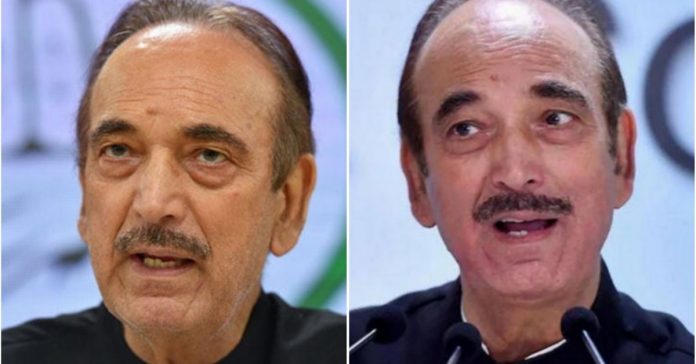
Ghulam Nabi Azad, outgoing Leader of the Opposition in the Rajya Sabha, is not a man given to expressing his emotions in public. But just as he delivered a moving speech in the Rajya Sabha when the Modi government presided over the abrogation of Article 370 in 2019, he turned emotional once again on Tuesday, 9 February: his term in the Upper House was winding down, signalling in all likelihood the end of a distinguished political career spanning half a century. Expressing the fervent hope that militancy would end in Kashmir, he quoted poet Faiz Ahmad Faiz:
“Dil na-umeed to nahi / nakaam hi to hai / lambi hai gham ki shaam / magar shaam hi to hai” (the heart has not lost hope even though it has been unsuccessful, long is the evening of sorrow, but it is only yet evening).

Why Ghulam Nabi Azad Will Be A Hard Act To Follow
More surprising was the fulsome — though entirely deserved — praise that Azad came in for from a teary-eyed Prime Minister Narendra Modi. The latter, however, after referring to the close personal bonds between the two former chief ministers, made a well judged home thrust — he pointedly mentioned that Mr Azad had signed a controversial letter to Sonia Gandhi suggesting a major overhaul of the Congress, something that had not endeared the letter writers to the party’s leadership. Given that the Bharatiya Janata Party’s (BJP) goal under its current leadership is to decimate the principal opposition party, Mr Modi’s using this occasion to make a dig at the Congress makes perfect political sense.
But Mr Modi’s statement that Mr Azad will be a hard act to follow is nonetheless true. For the former Jammu and Kashmir Chief Minister is that rare creature in the Congress— a self-made leader who rose from the wilds of Doda in the Jammu region to become a front ranking national leader. Equally significant, for the past so many years, he has been among Sonia Gandhi’s closest confidantes in the party, one of just a handful to whom she has turned for political advice. Mr Azad’s loyalty to the Congress has always been unquestioned — and his signing the letter written by those who have come to be known as the ‘G-23’ — despite his proximity to Mrs Gandhi — was read as a sign that the paralysis in the party caused by Rahul Gandhi’s refusal to step up to the job and get the Congress functioning again was getting to him.
Ghulam Nabi Azad’s Exit: Greater ‘Control’ For Rahul Gandhi’s Congress?
Today, it seems unlikely that Azad will be given another term in the Rajya Sabha because he will have to wait till at least April before getting elected to the Rajya Sabha, when the Congress will be able to get a party candidate elected to the Upper House from Kerala.
Jammu and Kashmir, from where Mr Azad is an MP, does not currently have an elected assembly. However, with assembly elections due in Kerala in May 2021, party sources say that the Congress leadership is unlikely to take a step that may create a political backlash in the southern state. Earlier, the Kerala unit of the Congress had reportedly refused to send P Chidambaram to the Rajya Sabha. Chidambaram later became a Rajya Sabha MP from Maharashtra.
Already, there is talk that Mallikarjun Kharge — Congress Leader in the Lok Sabha between 2014 and 2019 — will take over as Leader of Opposition in the Rajya Sabha after 15 February, when Azad’s term ends. Azad’s deputy, Anand Sharma, another Gandhi loyalist, has also blotted his copybook by being a signatory to the G-23 letter.
For Rahul Gandhi and his band of loyalists, the effective exit of Azad takes them one step closer to greater control of the party; party sources say that even though Sonia Gandhi remains Interim President she is no longer involved in day-to-day decisions.
Source: The Quint


































